For emails in which you want to obtain something from someoneIn Etiquette, Post calls it the best ending to a formal social note available (p 294) We tend to agree Typically used by People who know what they're doingPoint of view It's better to err on the side of caution and be more formal in any written exchange Email can and be used against an individual So it's better to err on the side of caution A few pointers to consider each time one writes email 1

45 Unsurpassed Email Sign Offs To Make An Impression
Best regards is an islamic sentence we write at the end of an email
Best regards is an islamic sentence we write at the end of an email-I have always capitalized only "Best" when ending my emails with "Best regards" A highly respected colleague at work capitalizes both "Best" and "Regards" I have read in other blogs that it's generally accepted to just capitalize "Best" but capitalize both if it's a formal communicationI thought it was, but my schooling was many moons ago Someone pointed out that this is an archaic form, and Yours sincerely or With kind regards are possible too
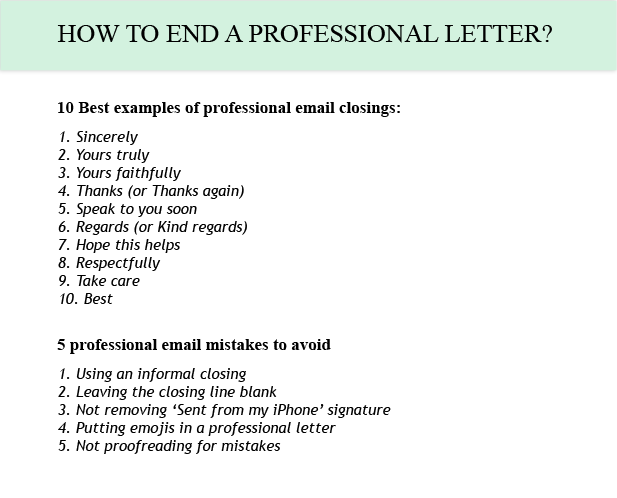


How To End A Letter 10 Examples What To Avoid Resumeperk Com
Ben Pobjie 'Cheers', 'all best', 'warm regards' – having to choose the best way to sign off an email is a minefield Which one do you use for what occasion?Regards Best Many thanks Best wishes Thanks and best wishes With thanks and best wishes Speaking of which, if you're confused about which signoffs are okay, and which are a professional nono, read our article on the best ways to start and finish an emailWith Best Regards, "Best Regards" can elicit a sense of understanding or a bolster good relationship you may have with an admissions counselor or hiring manager It assumes a little bit more but remains understated 27 Kind Regards, This cover letter closing is next to the best closing to a simple thank you
0711The same holds true to writing a business email — you need to close it when you're done But don't just type the same email signoffs into every message ("sincerely," "from," "best regards") Each signoff should vary depending on the context of your outreachWith etiquette in mind, yes, Regards is a fantastic way to end your letters/emails/etcetera, especially to anyone that you aren't close to It is both formal and sincere, and in my opinion sounds a lot more professional and mature than sincerely, which is what we are all taught in elementary school (or at least, I was)Adding a closing like "Regards" or "Sincerely" before your name is a polite way to end a message CONSIDER YOUR RELATIONSHIP WITH THE RECIPIENT You should stick to professional email closings when corresponding with anyone related to your job search
With regards to ending a formal email where you do not know the name of the person you're writing to, is Yours faithfully the only option?The second email sign off that's widely used in terms of closing formal emails is Best regards Use cases It works perfectly as an ending line for professional emails and it's ideal for initial email communications Variations Warm regards, Kind regards, Regards, Kindest regardsEnding a message with best regards shows you respect the recipient It's a way to say farewell and conveys warm wishes You can use best regards for semiformal or informal communication like emails This phrase is a valediction, or closing, to correspondence It's similar to


What Is Best To Use In An Email Regards Or Sincerely Quora
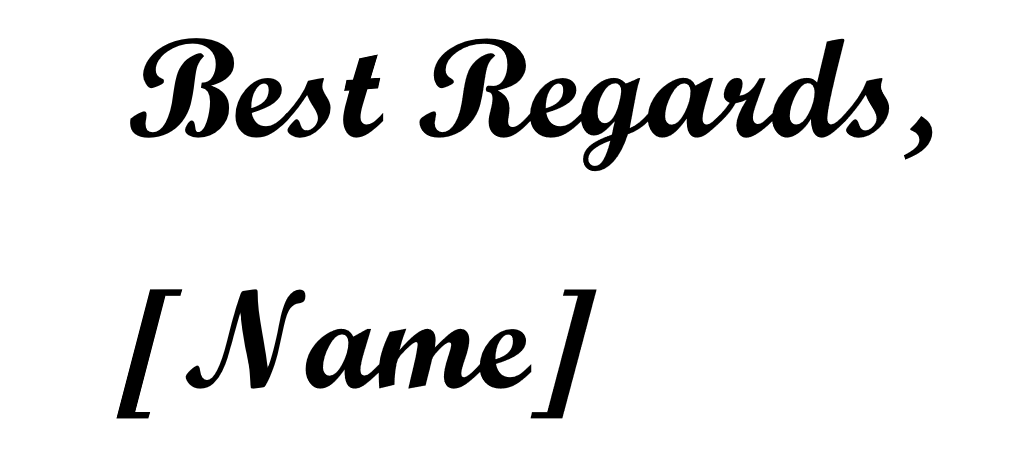


How To End An Email List Examples Of Best Letter Closings
Email began as an informal 'shorthand' medium, and in fact most people still seem to be influenced by this I don't think it will ever be as formal as nonemail As regards how to end a business, non email letter, here's what I think 'Best regards' and 'Kind regards' both seem to meWarm Regards – I like this for a personal email to someone you don't know very well, or a business email that is meant as a thankyou Warmest Regards – As good as Warm Regards, with a touch ofBest regards/wishes This is the safe option;



Stop The Signature Piling Up At The End Of A Long Thread The Emaii Signature Web Portal Help Center



Comma After Regards In Email Comma After Thank You In Email
Other professional letter closings include "sincerely," "best" and "best regards" Other casual letter closings include "take care," "cheers" and "talk soon" Two of the most common options for closing an email or letter are "thank you" and "regards"In this regard, in my subjective opinion, I would suggest the latter of my above alternatives My rationale is that writing Regards, John Doe before the organisation name conveys the message just written as coming from a personal perspective People relate more warmly with people than they do with organisations so connect as a person firstYes, you probably have an email signature already programmed in along with your contact details, and yes, the recipient knows who you are from your email address But still, it takes a second of your time to add 'Best wishes' and your name, and people do appreciate it



Better Than Best Unexpected Ways To End An Email Career Contessa Career Contessa Business Advice Entrepreneurship Resume Examples


Emailing English Customer Service
Best Regards This email closing is one of the most commonly used Whereas its popularity makes it an easy winner, questions may arise from its usage First of all, the word regards is used for salutation Yes, it is used for greetings This noun has several meaningsSending You the Best;0419In an analysis of 350,000 email threads by email scheduling app Boomerang, any variation of "thank you" got significantly more responses than emails ending with other popular closers like "cheers," "regards" and "best"



How To Write Effective Business And International Emails Culture Gaps


Business Builder Blog Www Chadpeshke Com
1512To end a formal email, thank the person for their time if they're helping you, or include a call to action if you're expecting a response from the recipient If the recipient needs something from you, be sure to address that in the final line of the email For business emails, sign off with Sincerely, Best regardsPlease take one of my cards I hope to hear from you soon!" Think of your email closing as the ending of a conversation By using friendly, polite and professional language with a clear calltoaction, you have a better chance of earning a positive response0900Thank you is a fairly safe bet when ending a professional email Because thank you is such an integral part of everyday communication, there is a slew of variations on the gratitudebased email ending There are also a few instances in which you could say I owe you I think this could be fun in the right context



How To End A Business Email In English
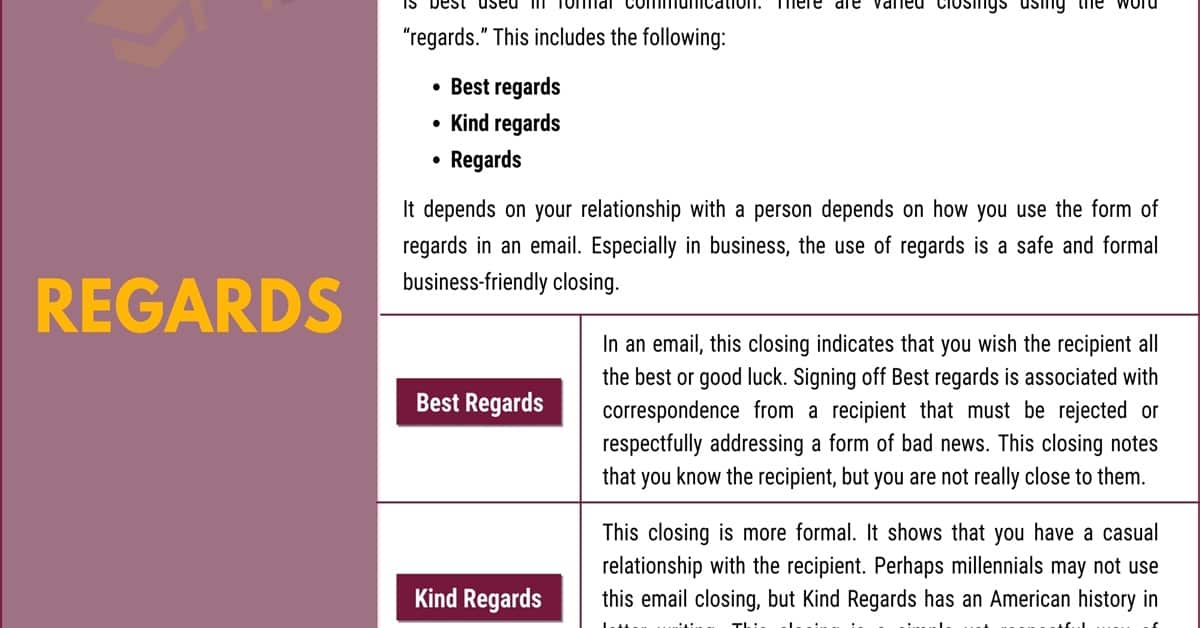


Regards Best Regards Sincerely Which To Use In An Email 7esl
All my best, Best, Best regards, Best wishes, Looking forward to hearing from you, Regards, Respectfully, Sincerely, Speak with you soon, Take care, Warm regards, Warm wishes, Warmly, If You Want Something Friendly These email closings work well when you're corresponding with someone you know well or when you're a few exchanges deep in anWorks best for chill emails 7 Thank you!Manners aside, the email close serves a practical function It helps define the personality of the email's content, says Aliza Licht, SVP of Global Communications for Donna Karan International
/Getty_complimentary_close-95465615-583f16f95f9b58d5b1c95a42.jpg)


The Complimentary Close In A Letter Or Email
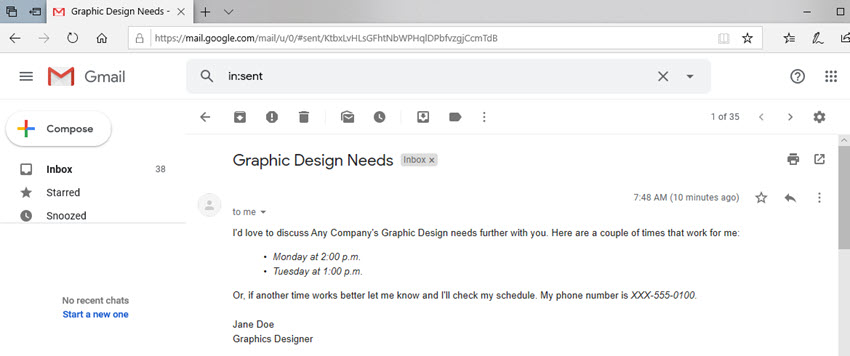


30 Best Ways To Sign Off Your Email To Be More Memorable
There are good ways to end an email and notsogood ways to end an email In this tutorial, you'll learn the right way to end a professional email, with some clear examples of the best ways to end an email You'll also discover why an email signature template can make a real difference in your emailThe other possibility with very formal American emails is to use the most common closing greeting in standard business emails, "Best regards" "Best regards" is also very common in British emails, but can't be used in very formal situations such as legalsounding complaints and job applications, where "Yours sincerely" and "Yours faithfully" are the only ones which areBest regards, Cordially, and Yours respectfully These letter closings fill the need for something slightly more personal They are appropriate once you have some knowledge of the person to whom you are writing You may have corresponded via email a few times, had a facetoface or phone interview, or met at a networking event



Never Do This The Worst Email Sign Offs Newoldstamp
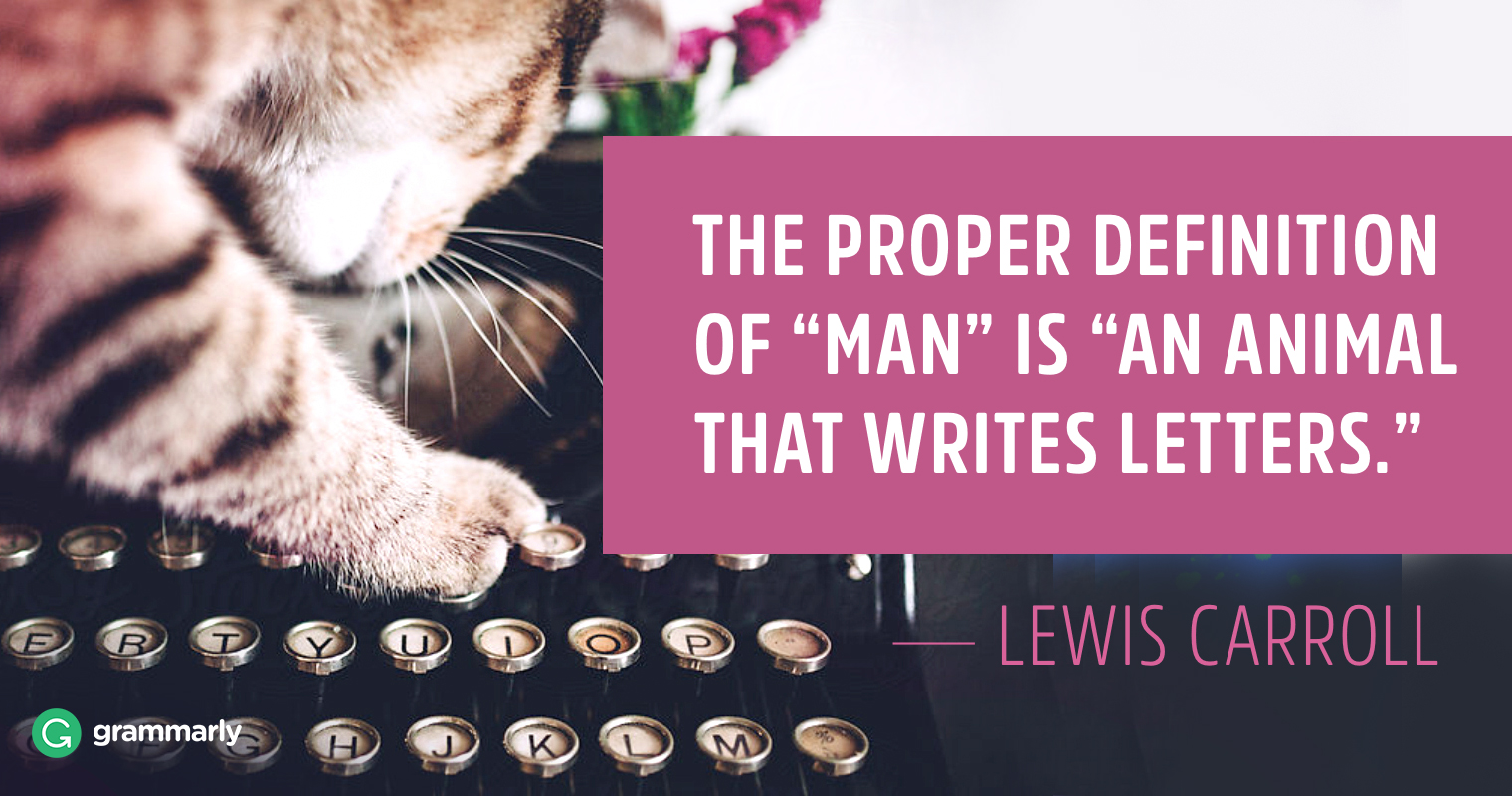


How To End A Business Letter 10 Best Letter Closings Grammarly
Warmest regards is a friendlier alternative to "Best regards" or just "Regards" It should work in any case Love or Lots of love is a way to sign off an email to a really good friend or a family member Don't use it with just anyone Alternatively, you can write Hugs to a close friend at the end of your emailAll The Best Best Regards – The Safest of Letter Closings While all of the above options are perfectly good letter closings, Best Regards has to be the overall best choice because it's professional and it applies in all situations and all types of emails Additional Points on How to End an Email #1 Include a Call to ActionPositive, polite and vanilla enough to not say too much about you or offend your email recipient "Best wishes or best regards are good options when you don't know a person well, but want to be safe and friendly," says Gelbard But don't confuse your best with your warm, she adds
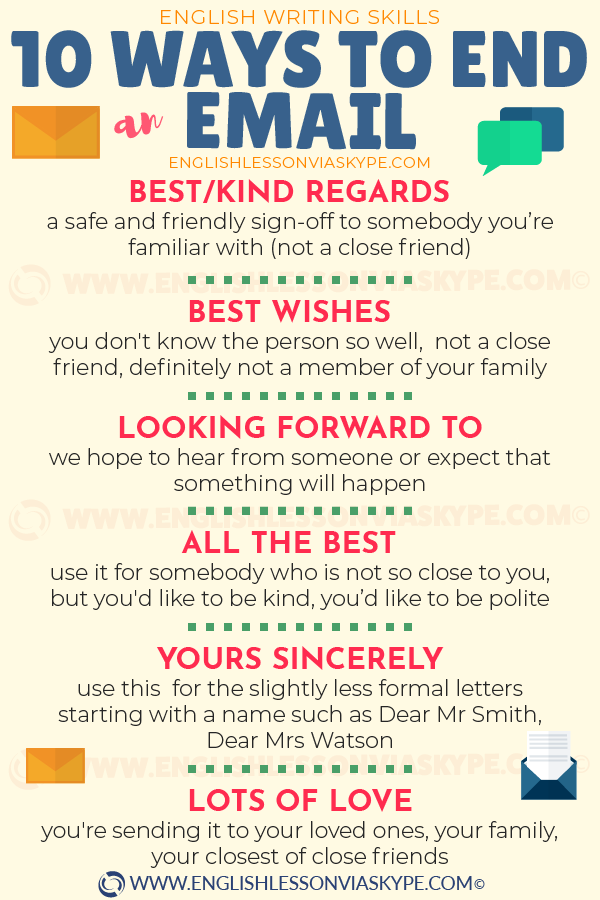


10 Ways To Finish An Email In English Learn English With Harry
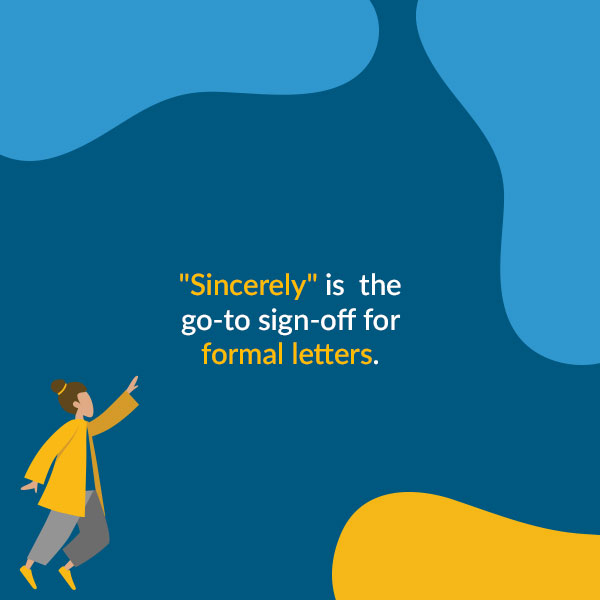


How To End A Letter 12 Useful Farewell Phrases Scribendi
6 Best, Best is as ubiquitous as it is0615Tacking a best onto the end of an email can read as archaic, like a momstyle voice mail Signoffs interrupt the flow of a conversation, anyway, and that's what email isIf you can pull off earnestness, go for it!
:max_bytes(150000):strip_icc()/email-message-closing-examples-2061895-FINAL-5ba524514cedfd0050e2321e.png)


How To End An Email Message With Examples



Best Regards Kind Regards Best Wishes Yours Sincerely Which To Use And When
Also noteworthy was that generic email signoffs like "regards" had lower response rates And it turned out that "best" was in fact worst among popular email closings Ending an email with "best" had the lowest average response rate when compared to other email signoffs that appeared 1,000 timesNo one will believe you!Regards, Best regards, and Kind regards are good email signoffs Remember that concerning and about can work just as well as, and more concisely than, in regard to and with regard to The phrases in regards to and with regards to are never correct,



With Warm Regards End Of Letter Page 3 Line 17qq Com



Best Way To End An Email Regards Page 7 Line 17qq Com
0709"Warmly" is a nice way to end an email and bring, well, a warm and fuzzy feeling to your recipient Keep on keepin' on;1806"Regards" or "with regards" can be an excellent way to close a business letter or email Since this signoff is so short, it allows you to conclude a message as neutrally as possible Also, if your message contains bad news, keeping your valediction simple can be a great way to avoid sounding insincere or inappropriate2402Best regards This email ending is slightly less formal than "Kind regards," but it's still a safe bet for your business emails Sincerely This is an appropriate signoff for cover letters Otherwise, it may sound too stuffy and formal, especially for more casual emails



Professional Etiquette Examples All The Best Email Sign Offs Wisestamp



When To Use Kind Regards In Emails Page 4 Line 17qq Com
Kind regards – A professional signoff, but with a bit lighter tone Regards – A straightforward email ending that you can't go wrong with Sincerely – A bit archaic but still professional signoff Thank you – The same as "Thanks" but more appropriate for professional emails Looking forward to hearing from you – A typical ending of your first email, where you expect a reply from your0517Keep in mind that it's likely to come off as stuffy in more casual business emails 3 Best wishes A good blend of friendliness and formality makes this signoff a safe bet, but be aware of its greetingcard vibe and use it only when it fits well with the tone of your email Email Closings for Friendly Business 4 Cheers2812"Best" is a shortened version of "best regards," and is often thought of as the sender sending positive feelings (or wishes) to the recipient While most people see it as a sincere and authentic signoff, there are those that consider "best" a bit corny or even inauthentic when you don't have a prior relationship



How To End An Email 39 Examples Of Email Closings
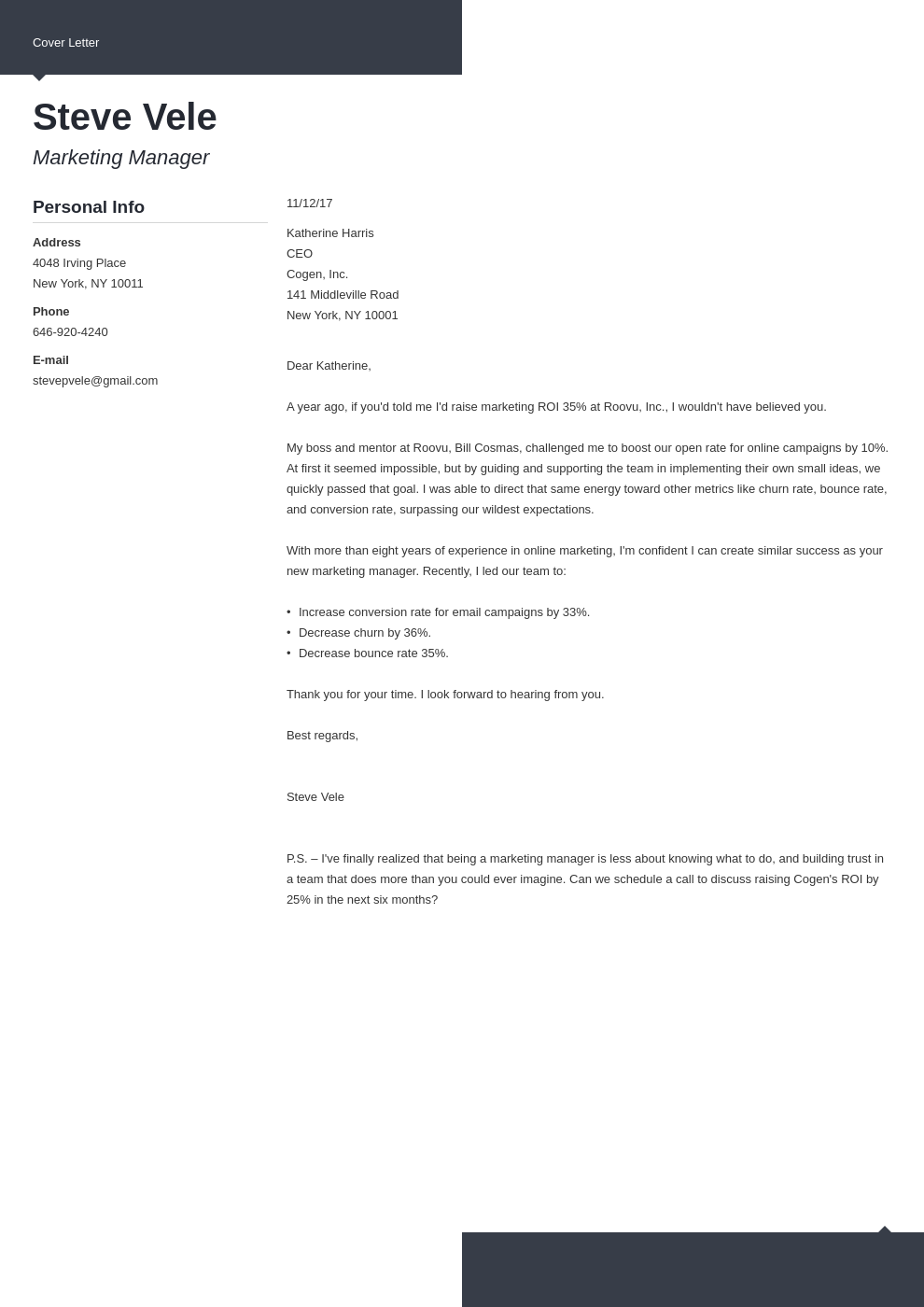


How To End A Cover Letter Closing Paragraph Examples
"Kind regards" or "Best regards" are both good The disadvantages are that it's permanent and easy to share, so responding in kind to an angry email will seldom end wellThis email signoff is casual, fun, and best used in settings that are the same Looking forward to your replyBut if you can't, don't use this!



Tired Of Ending Your Emails With Regards Here Are 69 Other Options Inc Com



Do You Ever Write Emails In English Maybe For Work Or Travel Are You Ever Unsure How To Sign Off Email Writing English Writing Skills Formal Letter Writing
"Kind regards" has become the default closer for emails throughout the Englishspeaking world – but it isn't and shouldn't be the only way to sign off every email Not only is it often unsuitable, but its ubiquitousness means it comes across as bland, meaningless and nothingy – like the "Hey how are you?" we hear constantly on the other side of the pondAt the end of an email to a client, it's always safe to say "Kind regards" or "Thanks" – or for a bit more formality, sign off with "Sincerely" But don't say "Later" – you'll come across as a teenager And closing with "Cheers" is a bit too cheeky Those are some tips from emailA good email sign off is one that's tailored to the recipient, the topic, and the emotional tone of your email A good email ending would put an emphasis on your main message relating to the email topic The best sign off will also add a positive emotional tone that's considered by your specific reader to be socially appropriate
/cover-letter-closing-examples-2060311-v2-5bd08955c9e77c0051fcd689.png)


How To Write A Cover Letter Closing With Examples



How To End Formal Email Page 1 Line 17qq Com
Sure, when writing an email, someone may also think the ending is the last thing to worry about Whether you choose the "Kind Regards", "Thank You", or "My Best" potential signoffs, it's just an email closing that you probably do not give even aBest wishes or Best regards would be better for business Kerr This is safe and pleasant and gives people a feel good close at the end of your email The closing Yours truly
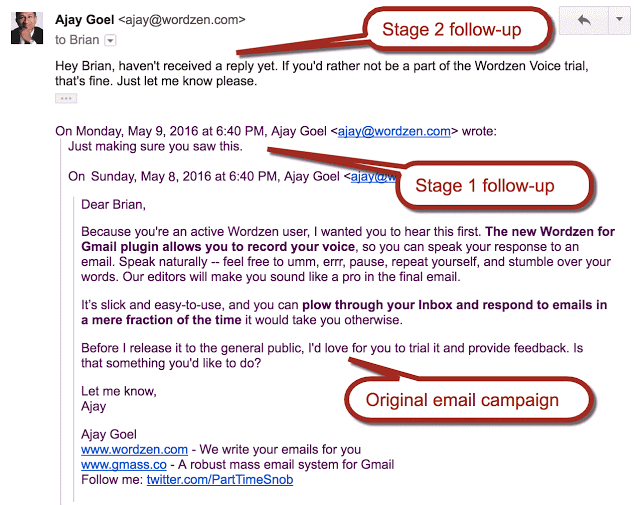


How To End A Professional Email Examples Tips



How To End An Email 36 Examples Of The Best Email Signatures


1



How To End An Email 9 Best Sign Offs And 9 Email Closings To Avoid Grammarly



How To End A Letter With Closing Examples How To End Letter Lettering Closing Words
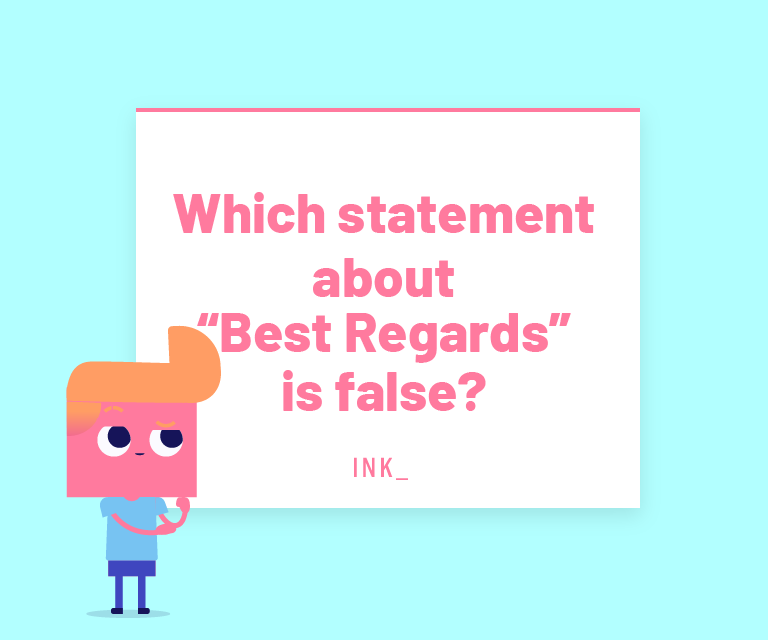


Best Regards And Other Alternative Ways To End An Email Ink Blog



Email Writing How To Start And End An Email In English The London School Of English



Email Sign Offs 8 Effective Ways To End Your Sales Email
/cover-letter-closing-examples-2060311-v2-5bd08955c9e77c0051fcd689.png)


How To Write A Cover Letter Closing With Examples
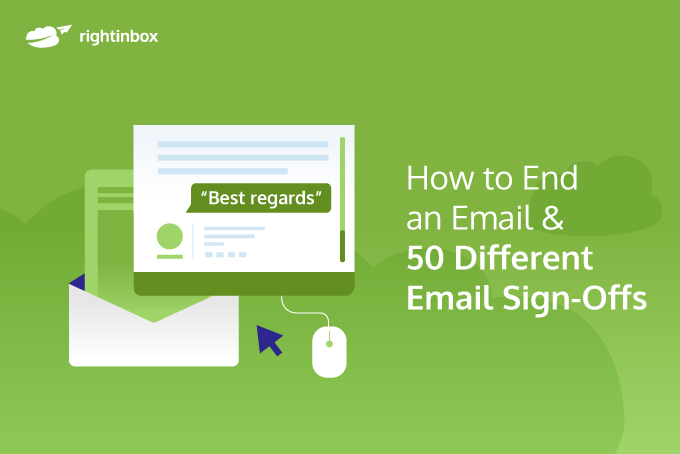


How To End An Email 50 Different Email Sign Offs
/thank-you-letter-closing-examples-2063965_final-f4b2ac787cd543c08fb0cc40998a4a22.png)


Thank You Letter Closing Examples



How To End An Email With Closing Examples Indeed Com
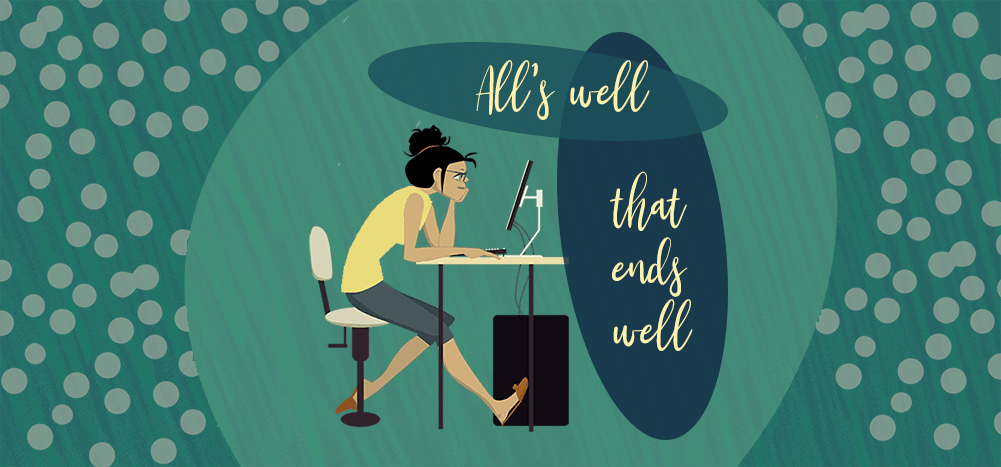


How To End A Professional Email Examples Tips
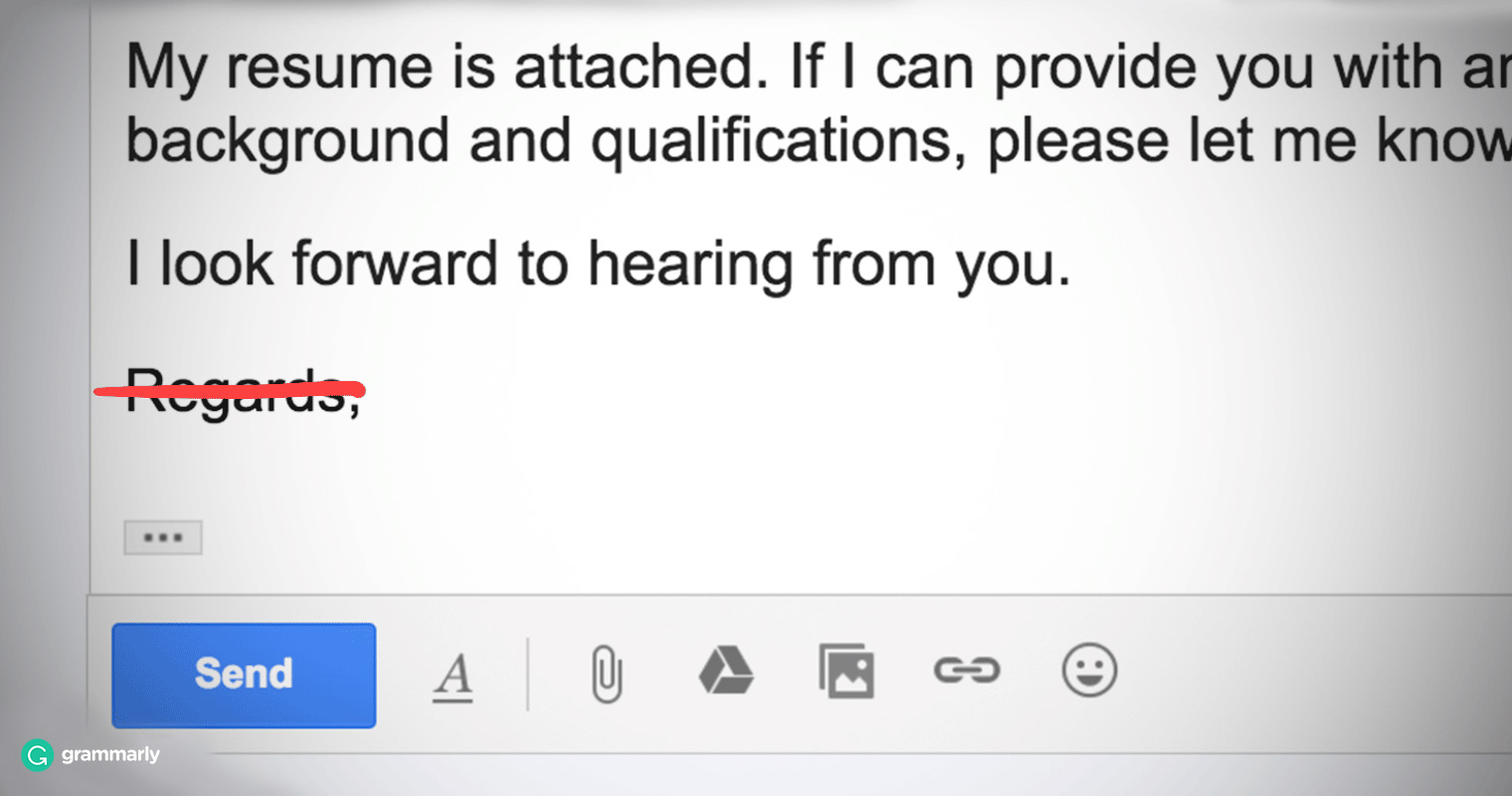


How To End An Email 9 Best Sign Offs And 9 Email Closings To Avoid Grammarly



26 Professional Email Ideas English Writing Email Writing Learn English



How To End A Letter In German 10 Steps With Pictures Wikihow



How To End Professional Email Professional Choices



Regards Best Regards Sincerely Which To Use In An Email 7esl
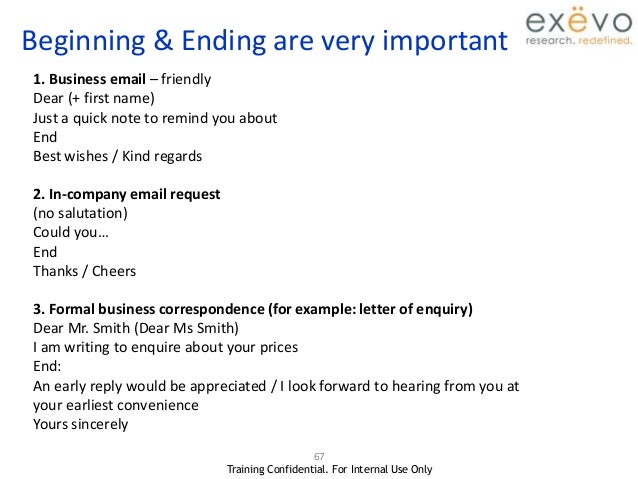


Email Etiquette 1 2



Best Regards Best Wishes Kind Regards Warm Regards Which One To Use Gimmio



Dear Best Regards How To Start And End Your Emails



How To End A Formal Email 12 Steps With Pictures Wikihow



Write An Email In Spanish Like A Native Essential Vocab And Phrases
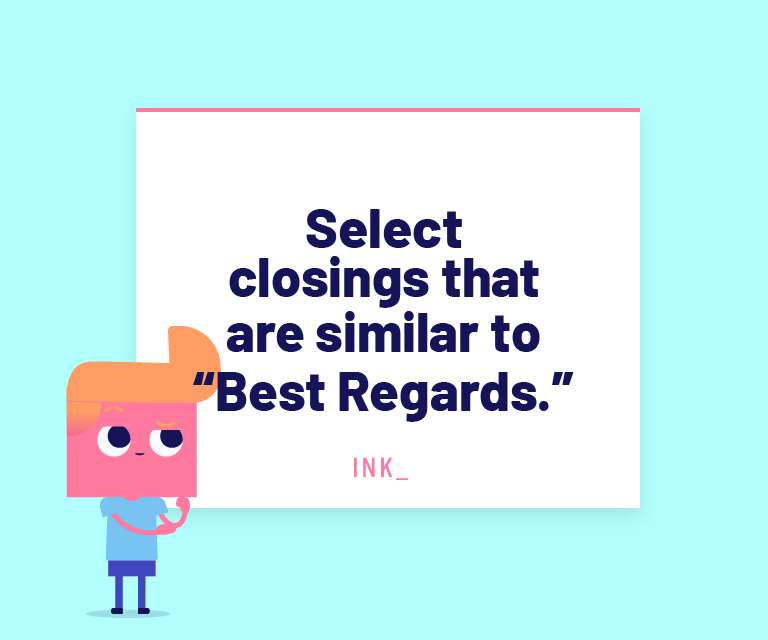


Best Regards And Other Alternative Ways To End An Email Ink Blog



How To End An Email



How To Create An Email Signature In Roundcube Knowledgebase Secureroi



What S The Best Way To End An Email Here S Our 6 Best Sign Offs Brafton
:max_bytes(150000):strip_icc()/HowtoEndaLetter_final-5b870a5dc9e77c0057b68a16.png)


How To End A Letter With Closing Examples
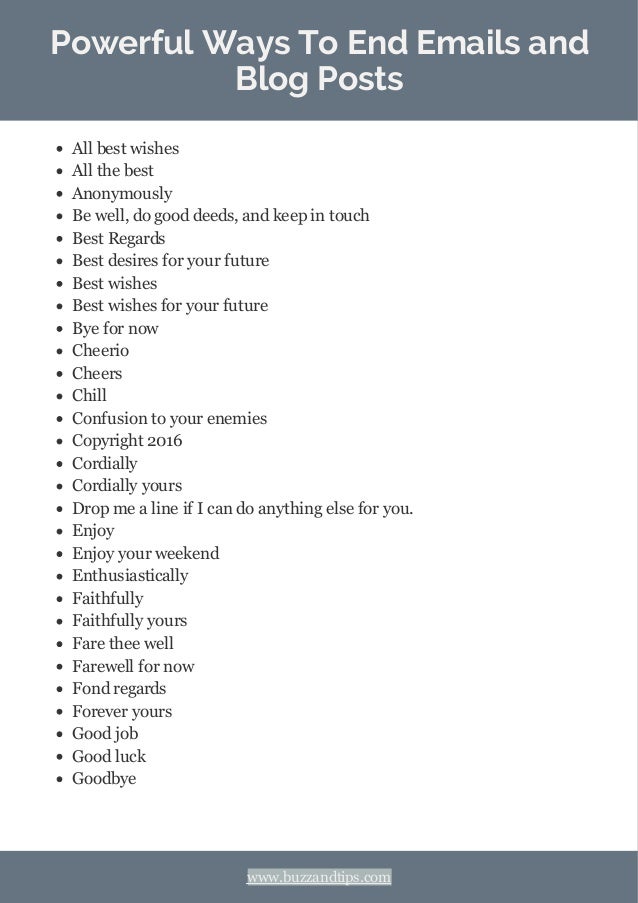


Powerful Ways To End Emails And Blog Posts
/iStock_000001691788_Medium-56b09b053df78cf772cff89b.jpg)


Business Letter Closing Examples



How To End A Letter 10 Examples What To Avoid Resumeperk Com



Forget Best Or Sincerely This Email Closing Gets The Most Replies Boomerang Email Productivity



This Is The Best Way To End A Work Email According To Etiquette Experts Huffpost Life
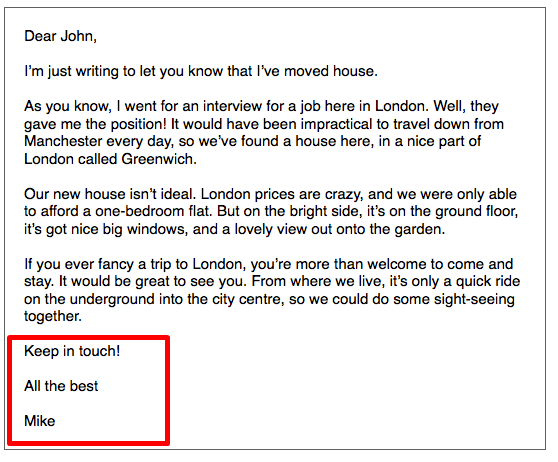


What Is The Difference Email Signature Electronic Signature And Digital Signature Newoldstamp



How To End An Email Professionally To Leave An Unforgettable Impression



Email Sign Off The Best Way To End An Email
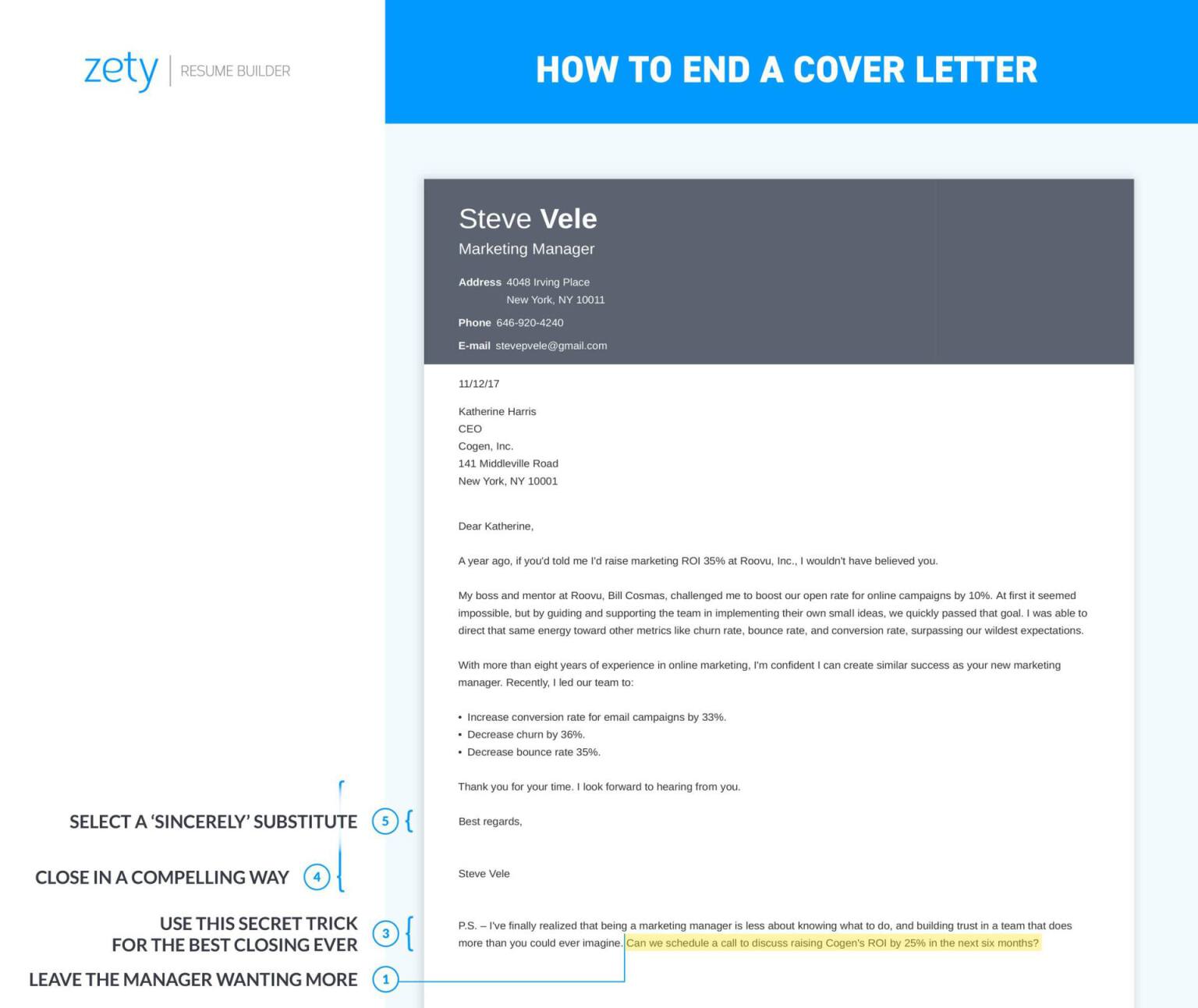


How To End A Cover Letter Closing Paragraph Examples



45 Unsurpassed Email Sign Offs To Make An Impression



The Best And Worst Email Sign Offs For Job Seekers Flexjobs
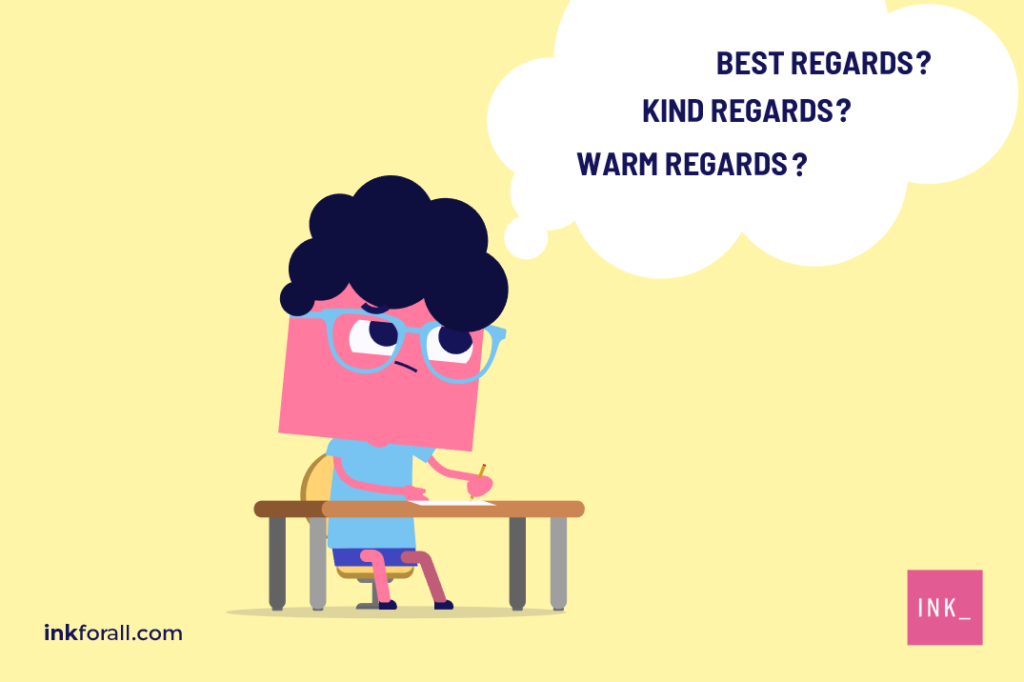


Best Regards And Other Alternative Ways To End An Email Ink Blog



Best Regards Kind Regards Best Wishes Yours Sincerely Which To Use And When


1


Better Than Best Unexpected Ways To End An Email Career Contessa



Forget Best Or Sincerely This Email Closing Gets The Most Replies Boomerang Email Productivity



Best Regards And Other Phrases You Should Never Use To Sign Your Email Fairygodboss



With Best Regards Closing Your Letter Udemy Blog


1


How To End An Email 15 Examples Of Professional Closings
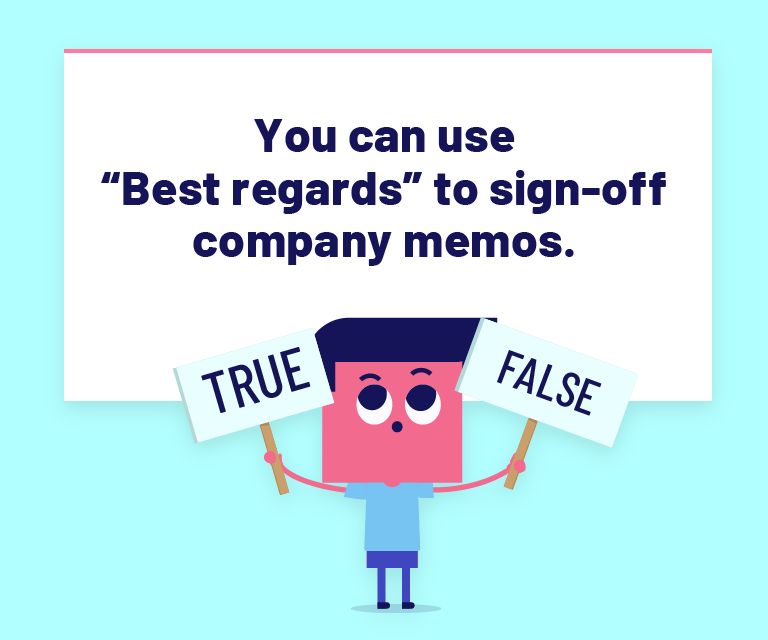


Best Regards And Other Alternative Ways To End An Email Ink Blog
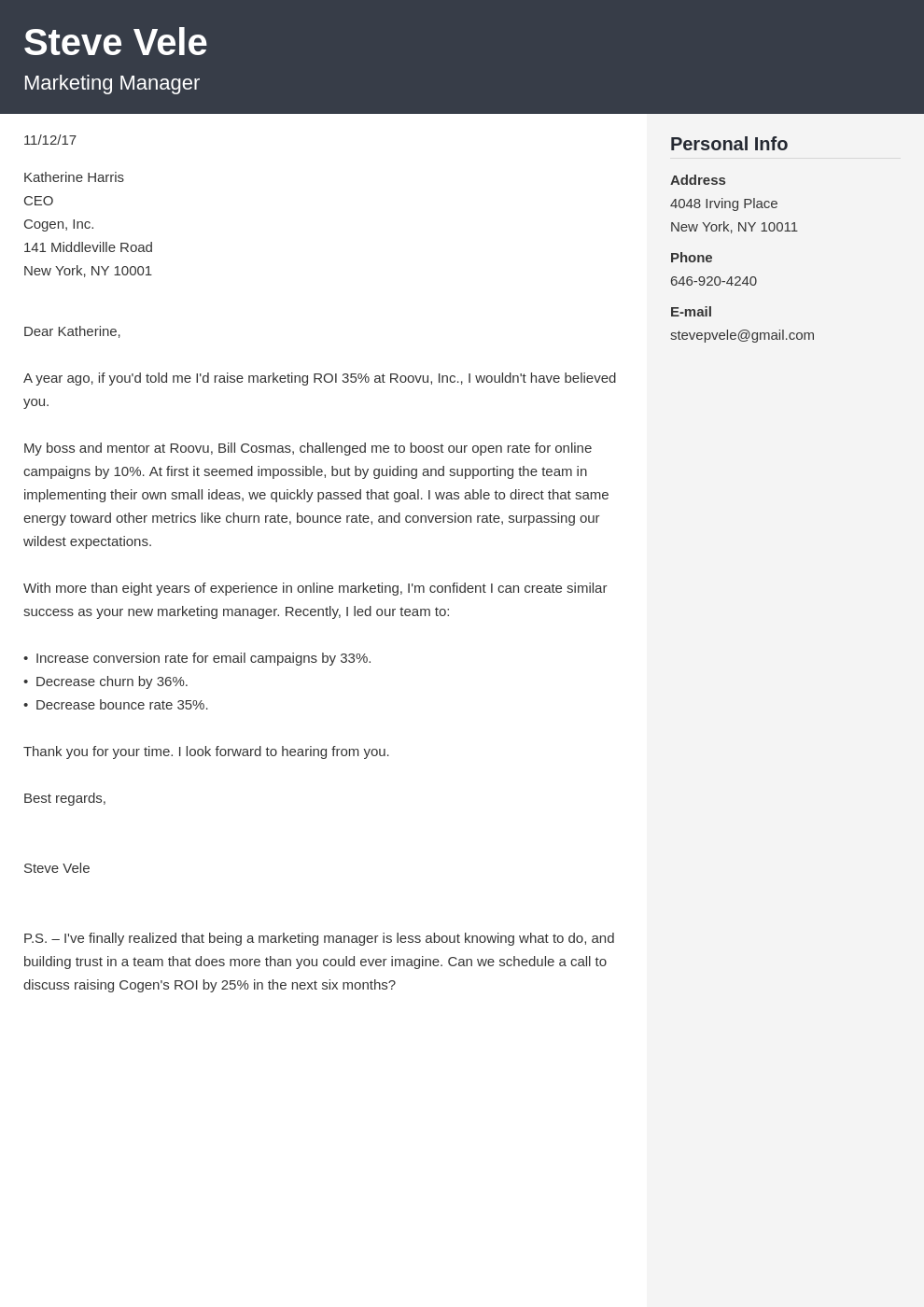


How To End A Cover Letter Closing Paragraph Examples
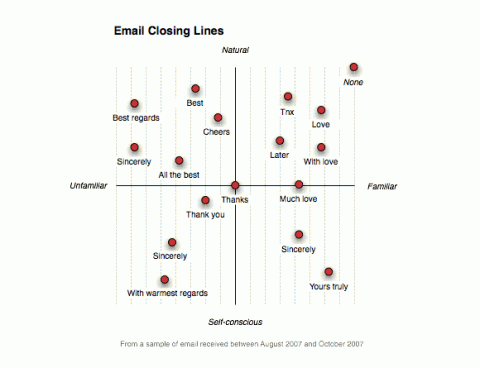


Swissmiss Email Closing Lines


How To End A Letter 12 Useful Farewell Phrases Scribendi



How To Write A Formal Email In Chinese



How To End A Formal Email 12 Steps With Pictures Wikihow



Best Regards Vs Kind Regards How To Use Them Each In An Email



Email Best Practices How Not To End Up In The Recycle Bin The Savvy Newcomer



Best Wishes Letter Ending



22 Business Letter Closing Examples Indeed Com


1
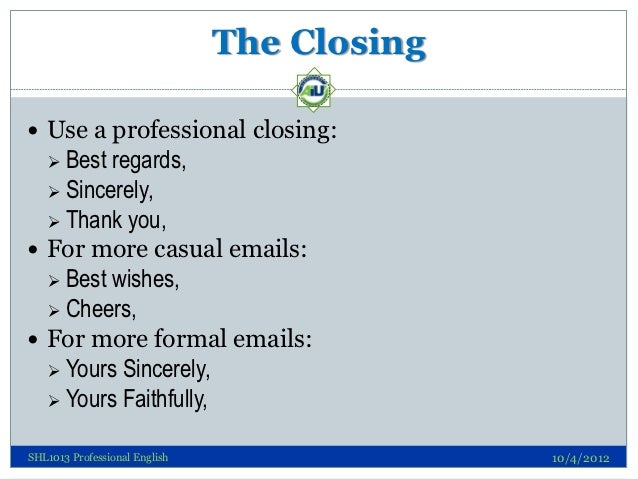


A Step By Step Guide To Writing Professional Emails That Have The Power To Convince Digital Polo Inc World S 1 Graphic Design Company


How To End An Email 15 Examples Of Professional Closings



How To End An Email Examples And 40 Sign Offs The Muse



Never Do This The Worst Email Sign Offs Newoldstamp
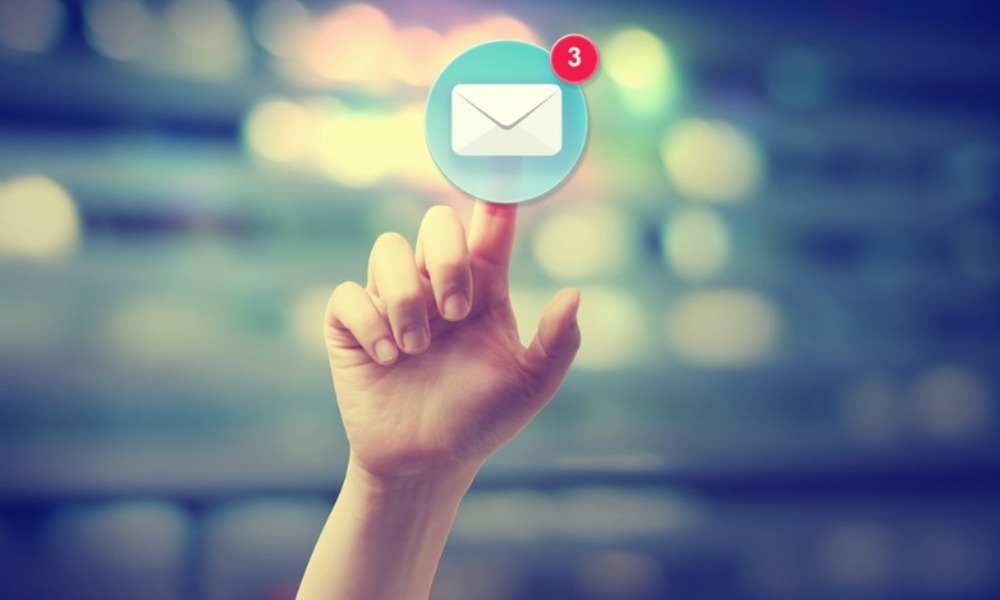


Cheers Sincerely Best How To Sign Off On A 24 Seven Talent
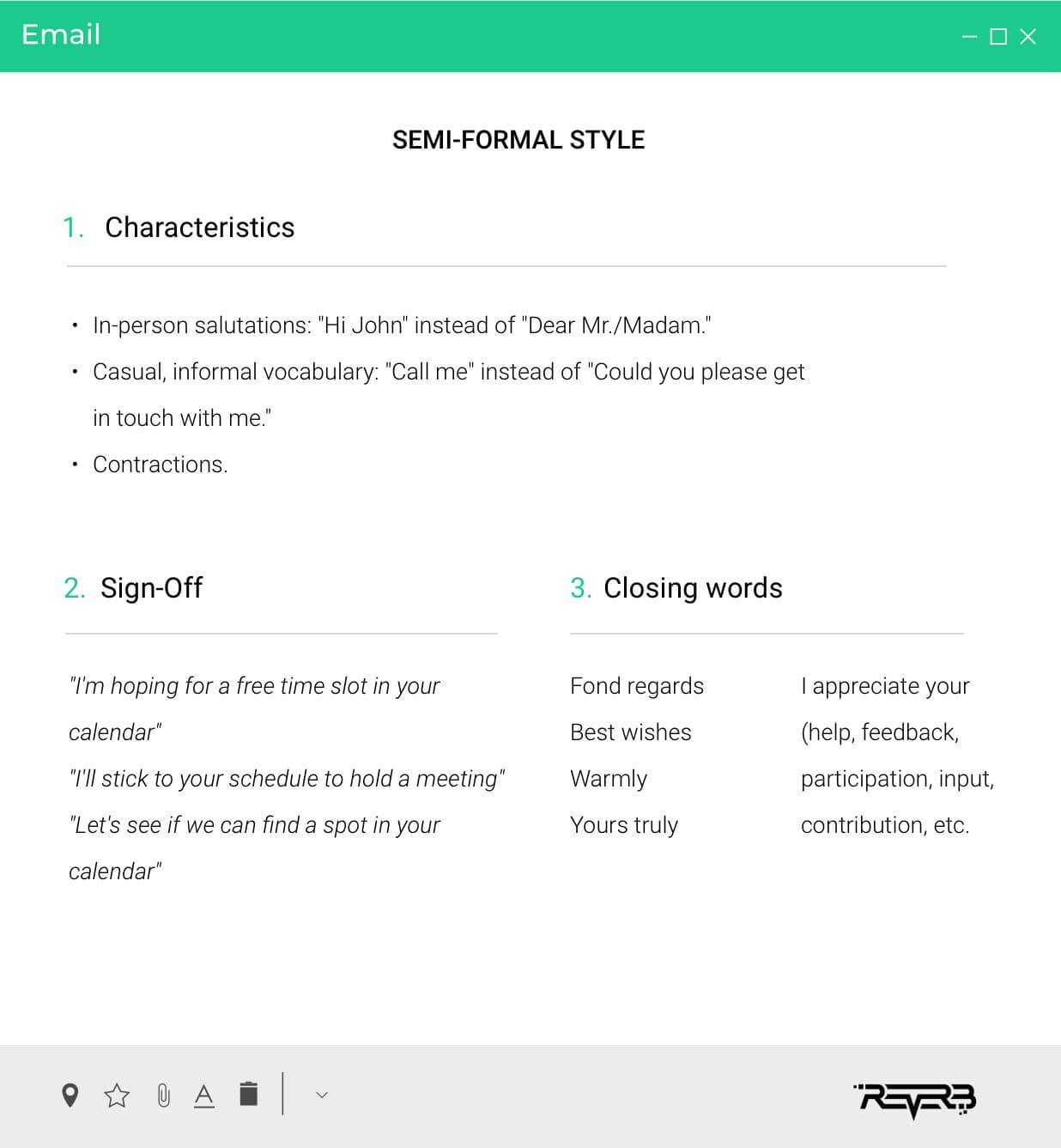


How To End An Email Like A Pro Ideas And Not So Obvious Tips
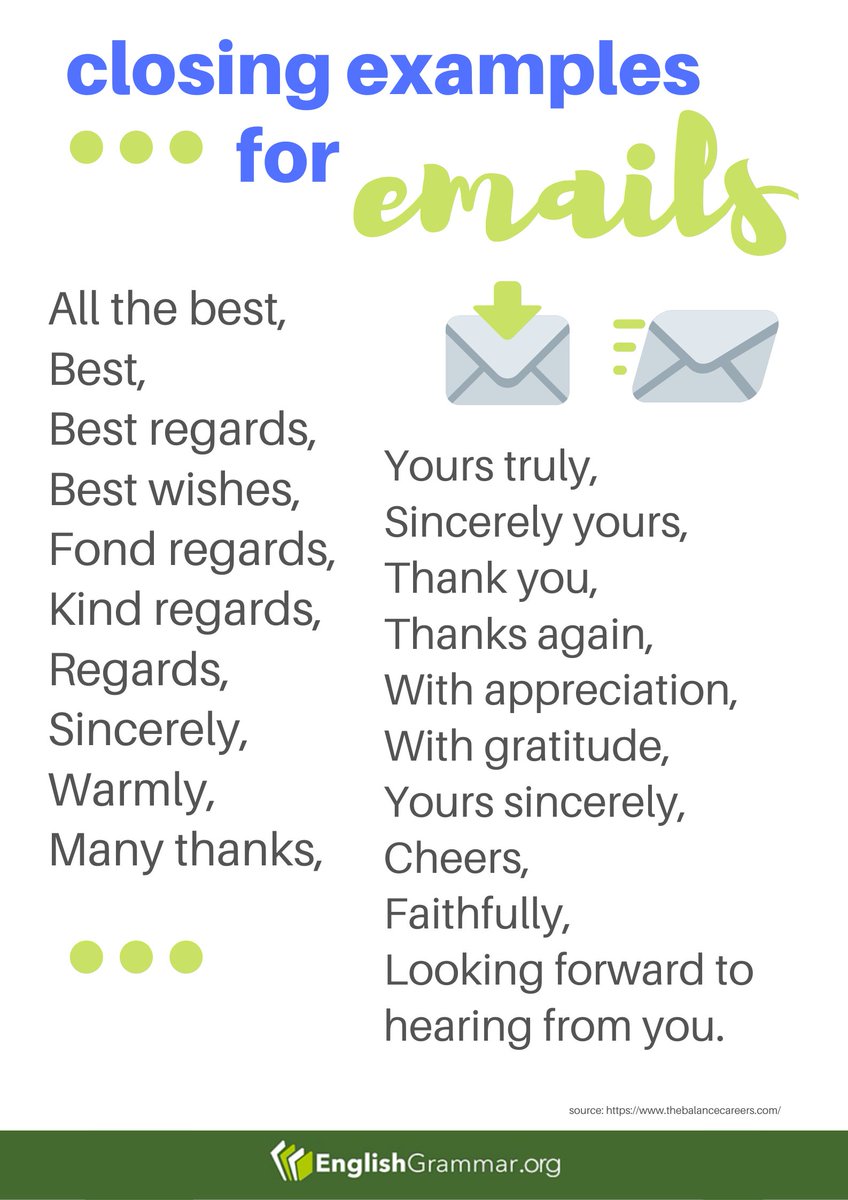


English Grammar How Do You End An Email Businesscorrespondence Emails Communication Writing
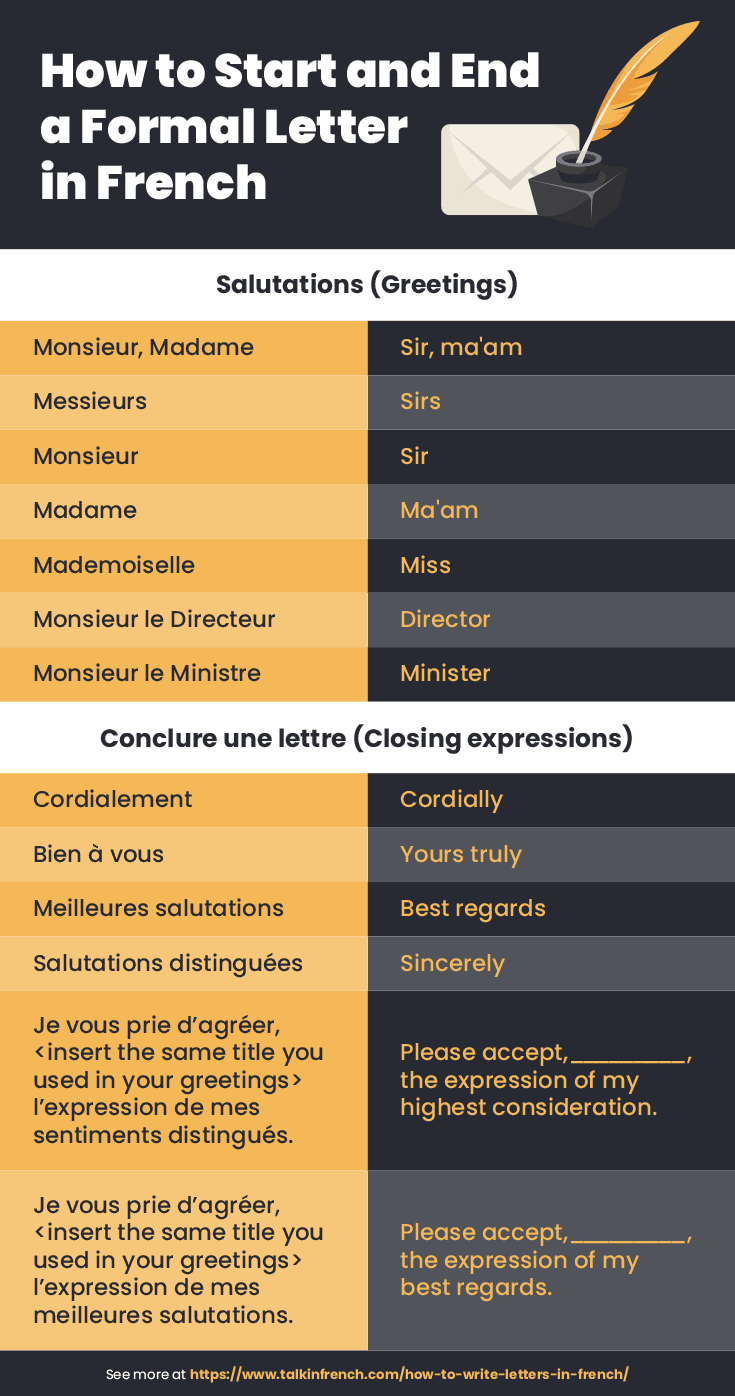


How To Write A Letter In French A Simple Guide Talk In French
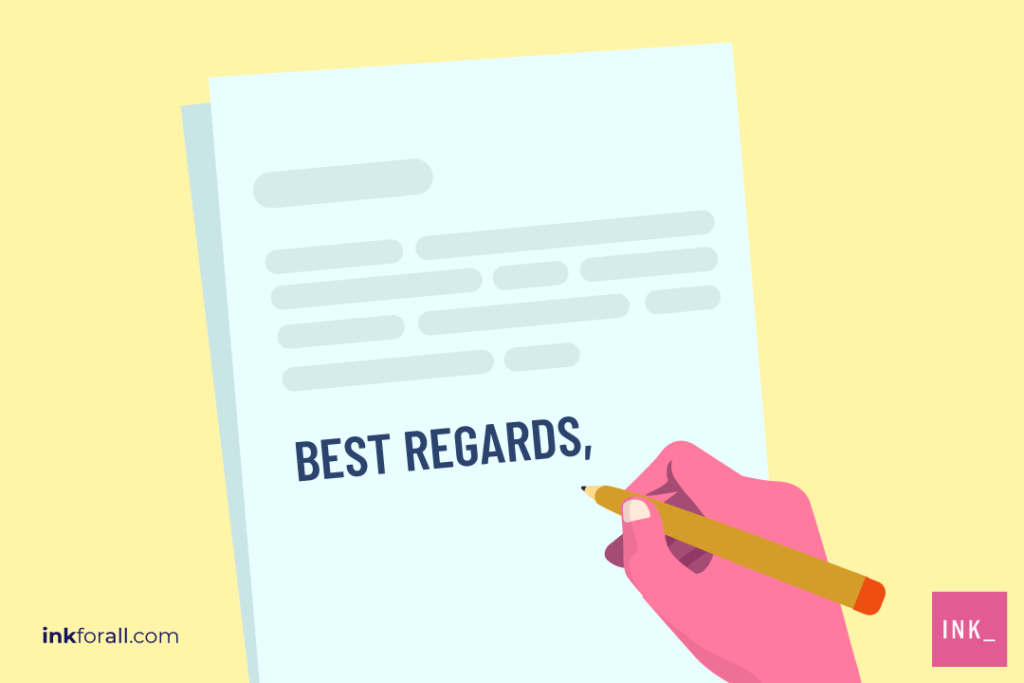


Best Regards And Other Alternative Ways To End An Email Ink Blog



How Does Your Email Closing Line Come Off



Forget Best Or Sincerely This Email Closing Gets The Most Replies Boomerang Email Productivity
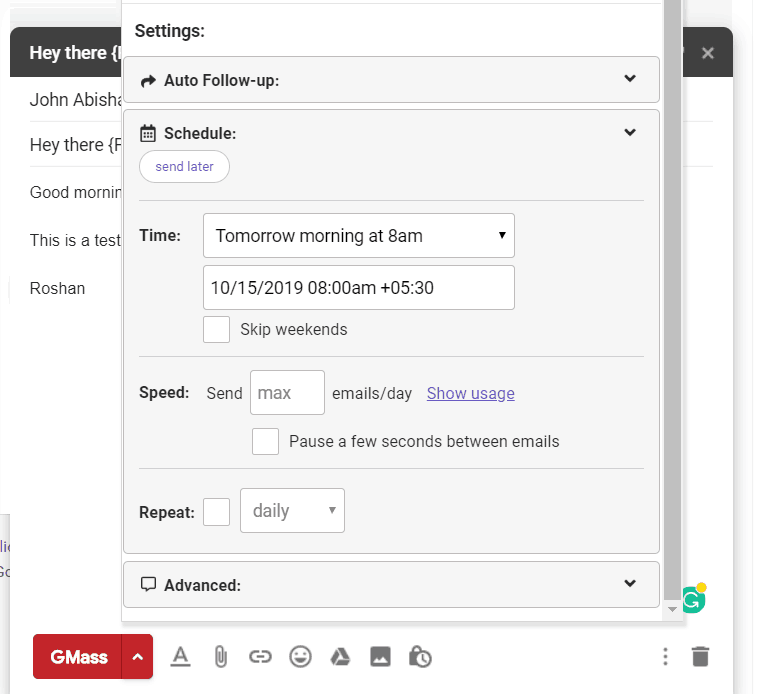


How To End A Professional Email Examples Tips



Best Regards Or Sincerely Page 4 Line 17qq Com



Sincerely Best Regards Thx Cheers Live Learn



Closing Signatures For Emails Page 1 Line 17qq Com
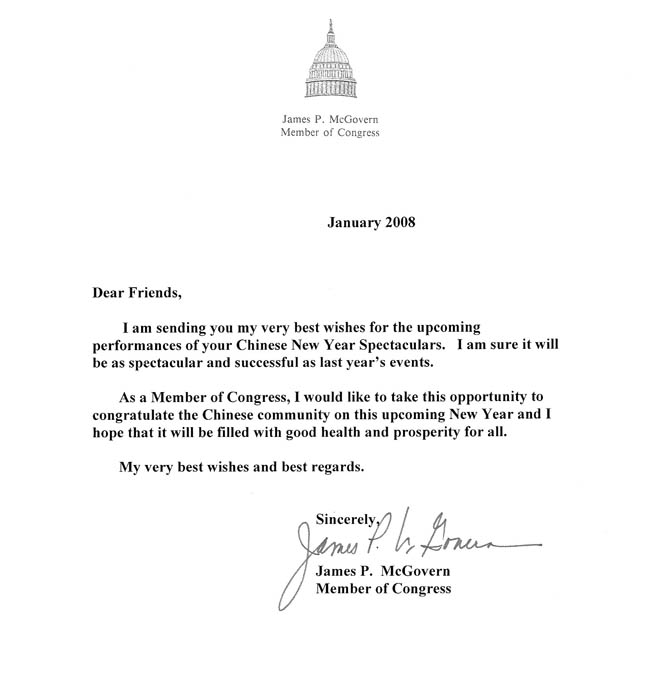


Warm Regards Or Kind Regards Best Regards And Alternatives The Best Ways To End An Email



57 Ways To Sign Off On An Email



0 件のコメント:
コメントを投稿